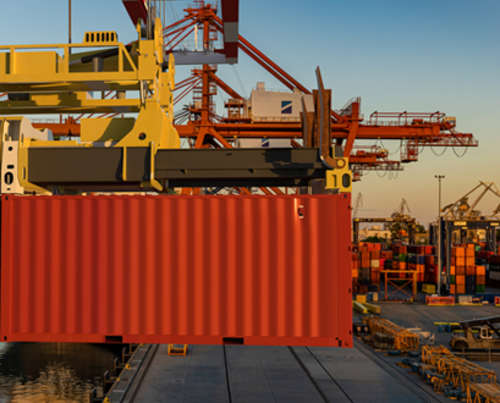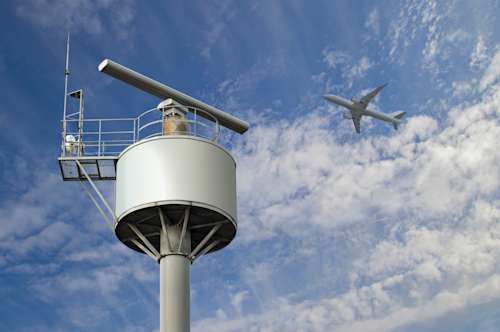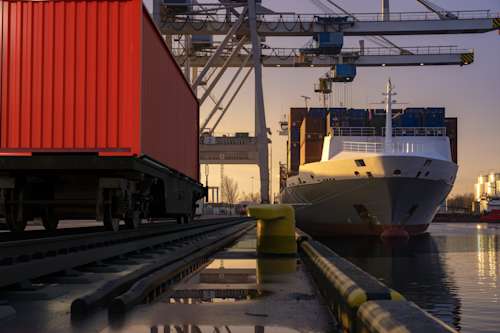Higg FSLM Verification for Sustainable Social and Labor Conditions in Your Supply Chain
Meet sustainability goals, improve social compliance, and foster better working conditions within your supply chain.
QIMA’s Higg FSLM verification offers a comprehensive assessment of a facility's social and labor conditions, as well as the effectiveness of its social management programs. This verification helps you mitigate risks related to labor violations or unethical practices in your supply chain.
On this page, you’ll gain a better understanding of:
What is the Higg Facility Social & Labor Module (Higg FSLM)?
What is the Higg Index?
What Does the Higg Facility Social and Labor Module Assess?
How Does Higg FSLM Verification (vFSLM) Work?
What are the Benefits of Higg Index Verification?
How is QIMA Involved?
QIMA Benefits
Need more information?
By contacting QIMA you agree to our privacy policy and terms and conditions.
What Is the Higg Facility Social & Labor Module (Higg FSLM)?
The Higg Facility Social and Labor Module (Higg FSLM) is one of five tools included in the Higg Index.
Brands, manufacturers, and retailers in the apparel, footwear, and home textiles industry can use Higg FSLM to assess social and labor conditions at their factories and facilities. By using the Higg FSLM, businesses gain a standardized system for evaluating workplace conditions.
Having a standardized system not only simplifies assessments but also makes it easier to compare relevant figures and identify areas for improvement.
What Is the Higg Index?
The Higg Index is a program launched in 2019 by the Cascale (formerly known as The Sustainable Apparel Coalition, or SAC), an alliance created to promote sustainable production in the apparel, footwear, and home textiles industry.
The Higg Index is a suite of standardized measurement tools that provide visibility into various aspects of a supply chain. The Higg tools offer a clear, accurate way of measuring the environmental and social impacts of producing and selling a particular product, as well as a roadmap for continuous improvement.
Along with the Higg Facility Social and Labor Module, the Higg Index includes the Higg Facility Environmental Module (FEM), the Higg Brand & Retail Module (BRM), the Higg Materials Sustainability Index (MSI), and the Higg Product Module (PM).
What Does the Higg Facility Social and Labor Module Assess?
Higg FSLM assesses the social and labor conditions within a facility and the effectiveness of social management programs.
The Higg Facility Social & Labor Module covers:
Recruitment and hiring
Wages and benefits
Working hours
Employee treatment
Health and safety
Employee involvement
Termination of employment
Management systems
Community involvement
The matters covered in the Higg FSLM are closely related to those in the alternative assessment program - the Social and Labor Convergence Program (SLCP). To ensure consistency in measurement across the industry, the structure of the Higg FSLM is built on the SLCP framework.
How Does Higg FSLM Verification (vFSLM) Work?
A facility should conduct a Higg Index self-assessment at least once per year. The assessment typically takes around 3-6 weeks to complete and requires a facility to answer questions and provide data related to the sustainability of its operations.
Once completed, self-assessments can then be verified through the SLCP verification process. While this step is optional, verification will enhance the credibility of the score and improve the consistency and comparability of results.
During the FSLM verification process, the verifying body examines the answers the facility has provided in its self-assessment and checks whether those answers are correct and accurate by conducting an on-site assessment. The goal is to ensure that the facility’s reported data aligns with actual practices on the ground.
The process a facility will go through during verification is as follows:
The facility completes and submits their self-assessment and then purchases verification.
The facility selects a verification body from the available options.
The verification body confirms and assigns a verifier.
The verifier and facility arrange a time for the verification to take place.
The verification process is completed and the verifier finalizes the vFSLM documentation.
Once the vFSLM is completed, the facility has 14 days to review and dispute any aspects of the vFSLM assessment before it’s finalized and submitted. After this, the information becomes publicly available.
After assessments are completed, the results are benchmarked by facility type, which allows factory management, brands, and retailers to compare performance levels against similar facilities. Benchmarking also provides facilities with a performance baseline and helps them assess improvements over time.
Throughout the assessment process, facilities receive clear guidance on areas for improvement.
Higg FSLM verification is available in 30 countries.
What are the Benefits of Higg Index Verification?
Official, verified results of Higg FSLM verification are presented on Higg.org and can be shared with business partners. This reduces the need for conducting another audit and eliminates “audit fatigue.” In addition, results can be tracked over time, which allows your company to demonstrate year-on-year improvements.
Here are the most important benefits of Higg FSLM verification:
Verified assessments enhance the credibility of the reported data and the trustworthiness of your sustainability claims.
Verification ensures that data across different facilities is consistent, making it easier to compare performance between similar operations.
Facilities and brands that undergo verification demonstrate a commitment to sustainability and ethical practices.
Verified assessments provide a baseline for performance, which helps track improvements over time.
Verification ensures that your practices align with global sustainability standards and industry best practices.
Verified sustainability credentials can open doors to new business relationships, partnerships, or markets.
How Is QIMA Involved?
QIMA is an approved verifying body for the Higg Facility and Social Labor Module. Through Higg FSLM verification, we enable brands to accurately measure social and labor conditions in manufacturing facilities worldwide.
Create an account and book Higg FSLM verification
QIMA Benefits
In-depth local knowledge with auditors attuned to the culture, laws and practices of their region.
CSR experts receive regular training on regulations and best practice.
Global coverage across 100 countries in Asia, Africa, Europe, North and South America.
Continuous improvement approach drives long-term change and empowers suppliers to act.
Online program management book audits, make payments and download detailed reports.
Custom compliance dashboard to assess supplier performance, track progress and visualize your supply network.




